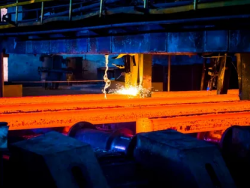The Indian government is preparing to introduce a 30 percent export tax on small fractions of low-grade iron ore by October this year to boost domestic added value and ensure higher availability of raw materials for local steel mills. Currently, high-grade iron ore with an Fe content above 62 percent is subject to a 30 percent duty, while low-grade ores are exported duty-free.
Miners express concern about the impact of export duties
The Goa Mineral Ore Exporters Association (GMOEA) has expressed serious concern about the proposed duty, stressing that Goa's iron ore reserves are predominantly low-grade and lack domestic demand. GMOEA warned that the new tax could disrupt mining operations in Goa, lead to large-scale savings and losses, and endanger livelihoods and regional economic stability.The Association also stressed that India is already facing an accumulation of 180 million tons of low-grade iron ore, which poses both economic and environmental challenges.
FIMI urges not to impose duties on low-grade iron ore
The Federation of Indian Mineral Industries (FIMI) stressed that there is practically no domestic demand for low-grade iron ore, as Indian steel producers consume only high-grade ores. In its official statement, FIMI argued that the introduction of an export tax would hinder the use and monetization of low-grade ore, exacerbate environmental risks due to landfills, and reduce employment in mining-dependent regions.
FIMI also noted that






